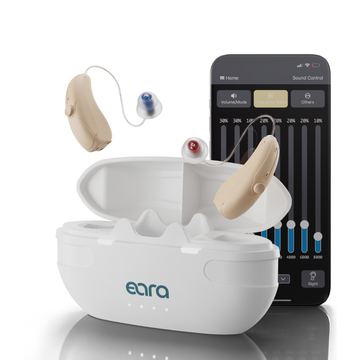It’s completely natural to feel hesitant when you first realize your hearing isn't quite what it used to be. For many, the gut reaction is to delay, to say, "I'll wait until I really need them." We understand that instinct.
However, clinical evidence confirms that waiting to address hearing loss is counterproductive to your long-term health and success with hearing aids. The best time for intervention isn't when your hearing is at its worst, but when you first notice you're missing out on the joy of everyday life.
The Problem with the "Wait and See" Strategy
Hearing is not just a function of your ears; it is a complex cognitive process that happens in your brain. Your ears capture the sound; your brain does the heavy lifting of interpreting, filtering, and understanding.
When hearing loss is left unaddressed, the brain is deprived of clear sound signals, particularly high-frequency sounds essential for understanding speech. This is a process called Auditory Deprivation.
Over time, the neural pathways in the brain that process sound begin to weaken. In an effort to be efficient, your brain starts reallocating those unused resources to other senses, like vision.
The danger? The longer this deprivation continues, the harder it becomes for your brain to effectively re-process those sounds, even once a hearing aid provides the necessary amplification. You might hear the volume, but struggle with clarity.
"I waited seven years, always blaming the acoustics in the room or people who mumbled. When I finally got hearing aids, I could hear everything, but my brain still struggled to separate speech from noise. I wish I hadn't lost those years of easy listening—it's a process my brain had to re-learn."
Janice M., 68
(For a deeper dive into the science of Auditory Deprivation)
When to Act: The Signs You're Missing
The most effective marker for getting help isn't a severe hearing test result; it’s the impact on your lifestyle. The time to act is when you recognize that your hearing is costing you more than you realize.
When you struggle to hear, your brain dedicates immense effort to straining and guessing, a phenomenon known as increased cognitive load (the total amount of mental effort being used in your working memory). This extra effort can manifest in unexpected ways:
-
The "Pardon Me" Loop: You find yourself constantly saying "What?" or "Can you repeat that?"; a continuous loop that makes simple conversations feel tiring for both you and those speaking to you.
-
Social Fatigue: You feel mentally drained and exhausted after simple group gatherings because your brain was working overtime to track the conversation.
-
Relationship Strain: Constant misunderstandings or arguments over TV volume create friction with loved ones.
-
Withdrawal: You start avoiding favorite places, such as busy restaurants, theaters, or family events, because communicating is just too difficult.
If your hearing challenges are making your life smaller or more tiring, that is your signal.
Early Intervention is Brain Preservation
Choosing early intervention is one of the smartest decisions you can make for your overall health. By providing your brain with timely, consistent stimulation through hearing aids, you reduce that unnecessary cognitive load, freeing up mental energy for tasks like memory, focus, and comprehension.
This direct connection is why major health studies link untreated hearing loss to higher risks of cognitive decline and dementia. The simple act of keeping the auditory system stimulated is a powerful investment in long-term brain health.
Read More on the link between hearing and cognitive health
Taking the First Step
We are here to support you in taking a proactive approach, and starting is easier than ever.
You don't need to delay your decision by booking appointments or facing high costs. The first step is simply our free, comprehensive online hearing test. This is the non-committal, objective data you need to start your journey.
More importantly, every one of our modern OTC hearing aids includes an integrated hearing test. It's a quick, pressure-free way to measure your specific hearing needs, ensuring your new device automatically adjusts and customizes its settings for your unique loss profile.
Don't wait until communication becomes painful or your brain has lost its acuity for sound. Embrace the ease and effectiveness of early intervention. Your future quality of life begins with the decision you make today.





















